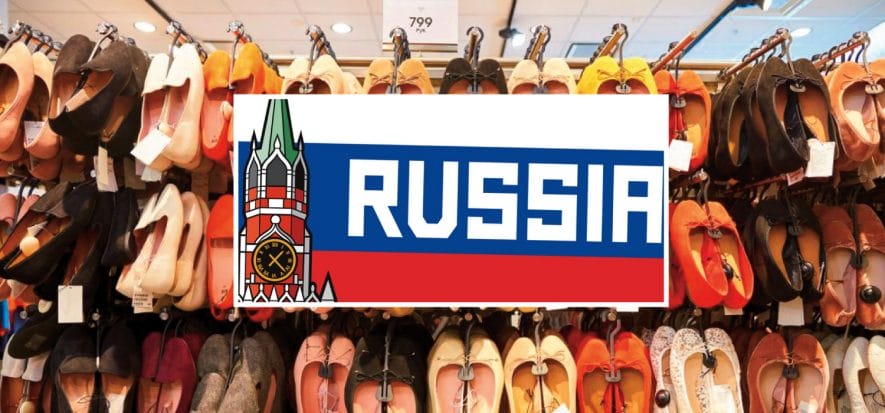Moscow, 1st July 2020: mandatory labelling for some products, including, among others, shoes, has officially entered into force. Russia has implemented such measure to erase, or soften at least, illegal trade and, consequently, safeguard buyers against frauds.
Yet, compliance with the newly approved regulation will entail rising costs, both for Russian buyers and exporters as well. As regards goods purchased abroad prior to 1st July (which will therefore pass through Russian customs later), companies are supposed to adapt to the new regulation by August 1st.
Shoe labelling has entered into force
ACORT, the association of Russian retailers, stressed the fact that the most important footwear chains, which are members of the association itself, are fully prepared. “We do not expect any difficulties to arise”, commented Ilya Vlasenko, a representative of the association, while speaking to Tass agency. The Centre for the Development of Advanced Technologies (CTCT), which sees to release numerical codes that apply to shoe boxes, instead, set in order the application stages of the regulating measure. In other words, those who have stockpiled in their warehouse some shoes, formerly labelled during the labelling trial phase, will be in time to sell them until 1st August. Otherwise, they will have to inform authorities about their unsold stocks: starting from the day after, they will be no longer allowed to sell them.
See what is going to change
The Russian government has assured buyers that prices will not increase at all. It sounds reasonable: in fact, fixed costs for professionals and insiders, though inevitable, are not particularly high apparently. For example, as reported by Shoes Report, expenses related to labelling management. “Talking about a small sized footwear manufacturing factory – pointed out Viktor Yevtukhov, vice-minister of Industry and Trade – the tools they need cost 280 to 316 euros. More specifically, they are supposed to buy a printer for labelling, a scanner and an applicator; on top of that, they will have to spend something for the management of electronic digital signature”. Italian exporters will have to deal with various duties. Yet, they will often work them out by paying a commission per each pair of shoes: they will pay it either to Russian importers, if the company is a large sized one, or to logistics and shipping enterprises.
Read also:










